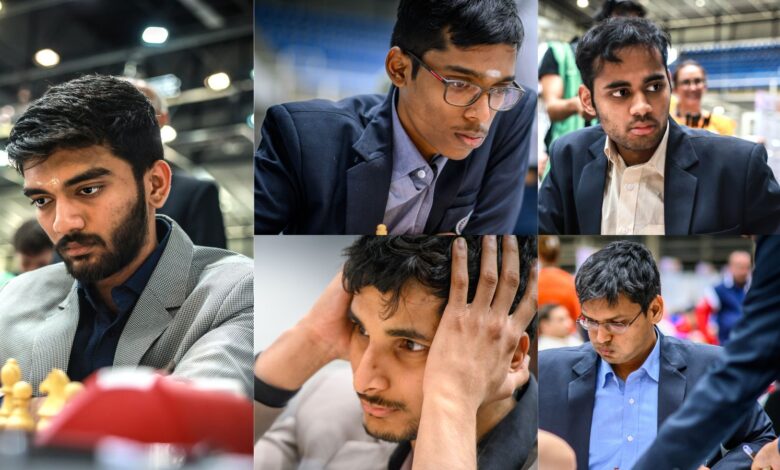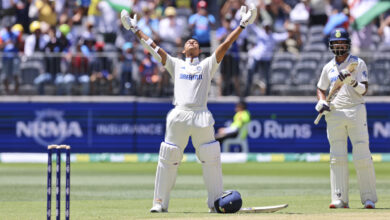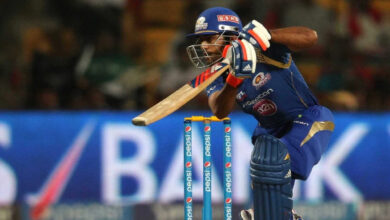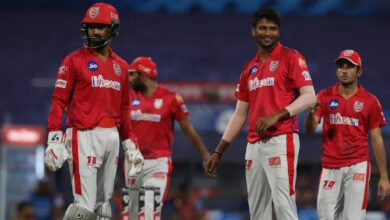Chess Olympiad: Unstoppable forces and immovable objects – Decoding the strengths of the five players who have brought India gold | Chess News

The Indian chess team claimed a sensational gold medal in the open section of the Olympiad in a collective flexing of muscle for a nation of 1.4 billion. This is the first time the Indian chess team has managed to claim a team gold in the open section when the tournament is held over the board. India had shared gold with Russia when the event was held online, but that was a completely different format. The five players who have won gold — D Gukesh (18 years of age with a world ranking of 7 and rating of 2764), R Praggnanandhaa (19 years of age with a world ranking of 12 and rating of 2750), Arjun Erigaisi (21 years old and ranked No 4 in the world with an ELO rating of 2778), Vidit Gujrathi (29 years of age with a ranking of 24 and rating of 2720), and P Harikrishna (38 years of age with a ranking of 41 and rating of 2686) — are very different personalities in real life and on the board.
Put together, the five players are so good that in the 44 games that they have played in Budapest during the Olympiad, they have lost just one game.
With help from RB Ramesh and our own personal observations during games, we tried to piece together on- and off-board personalities of the fabulous five of the Indian team.
D Gukesh
Gukesh is possibly the most serious teenager in the world. He almost enters a zone a few days before a tournament starts and after that, there’s little that can dract him. It’s that sort of focus that has seen him win eight games and draw the remaining two out of the 10 rounds he’s played at Budapest. He wears a permanent game face during tournaments. During games, his visage rarely bleeds his inner emotions while his eyes flit from piece to piece as he calculates lines deep into the end game. Viswanathan Anand had once told The Indian Express that when he faced Gukesh in a rapid match at the SuperUnited Rapid and Blitz Croatia tournament last year, he saw a completely new side of the teenager.
“I got to see a slightly newer side of him. He looked very cold. Very dant. I realised he was just trying to focus before the game,” Anand said last year.
Arjun Erigaisi
Having a world no 4 like Arjun Erigaisi playing on the third board and facing mostly the third-best players of every team has been the greatest weapon for the Indian team. Arjun has scythed through opponents, winning nine games and drawing the remaining two. He’s the only player for India who’s played in all 11 rounds. In games, Arjun can be seen staring into the dance as he calculates moves. He’s usually the player who has plenty of time left on his clock. On Sunday, he beat his opponent Jan Subelj while having one full hour left on his clock. The Slovenian player had 16 minutes. It’s the kind of duress he puts players under, which saw Magnus Carlsen call him a “mad man on the chess board” in an interview with The Indian Express.
Grandmaster RB Ramesh, who was a captain of the Indian team at the last Olympiad, pointed out the similarities between Gukesh and Arjun.
“Gukesh has done really well playing against some tough opposition players on the top board. At the last Olympiad also, he had a similar performance and repeating it is not easy. Probably among the best performances. Gukesh is a very confident player who has plenty of self-belief. That’s his main strength. He believes he can beat anyone and that’s given him the confidence to take all kinds of decisions on the board. He takes plenty of risks trying to play for a win. He plays accurate chess, doesn’t make too many makes. He’s not someone who’s satisfied with a draw, so he takes his chances. He’s a fighting player,” Ramesh told The Indian Express on Sunday.
Talking about Arjun, Ramesh added: “Arjun is very similar to Gukesh. Both of them are extremely self-confident. They take a lot of risks and play for wins. They both put a lot of energy over the board. For both Arjun and Gukesh, their overall attitude is their strength. They like to fight, so it doesn’t matter if it is the middle game or the endgame. They like to fight in every phase. Arjun’s very well prepared opening-wise.”
R Praggnanandhaa
Praggnanandhaa, who played on the second board for India, is also one of the most focused players in the sport, stoic on the board. He did not have a good run of results in the past few weeks. But it’s a testament to his ability that he’s only had one loss in the entire tournament, to a grandmaster rated over 2750.
“Pragg is a very different player from Arjun and Gukesh. He’s a more solid player. Not just him, Harikrishna and Vidit as well. They’re more positionally-inclined players on the board. Pragg has been going through a rough patch for the last three months. That’s why he has been having a lot of draws. But he’s playing quite solid chess. The loss against Wesley So was unfortunate, but sometimes you have to go through these moments and recover. To win games, he relies more on the endgame phase. But that doesn’t always work. Some games you can win, but many games will end in a draw,” says Ramesh, who helped Pragg and his ser R Vaishali take their first steps towards greatness.
Vidit Gujrathi
Having a player of Vidit’s strength on the fourth board with Harikrishna coming in as a replacement whenever needed has also been a luxury for the Indian team. Vidit is a player who was contending in the super-competitive Candidates tournament earlier this year, an indicator of his form. Unlike the other three players, he is someone who will relax between games. At the Bermuda Party in the middle of the Olympiad, he and Arjun were the Indian players turned up.
“Vidit has been having good performances in general. Some tournaments go badly for him. But in general, in most of the recent tournaments, he has had decent performances. Here he’s played very positive chess. Overall, it’s a very good result from him. He’s won some critical games on the fourth board for India,” says Ramesh.
Pentala Harikrishna
And then comes Harikrishna, the veteran of the team, who has played in only three games, winning two and drawing the third.
Ramesh says: “Harikrishna is the most experienced player for India, but has a lower rating compared to the others. He’s not got many chances to play. But whenever he has played, he’s done his part for the team.”







